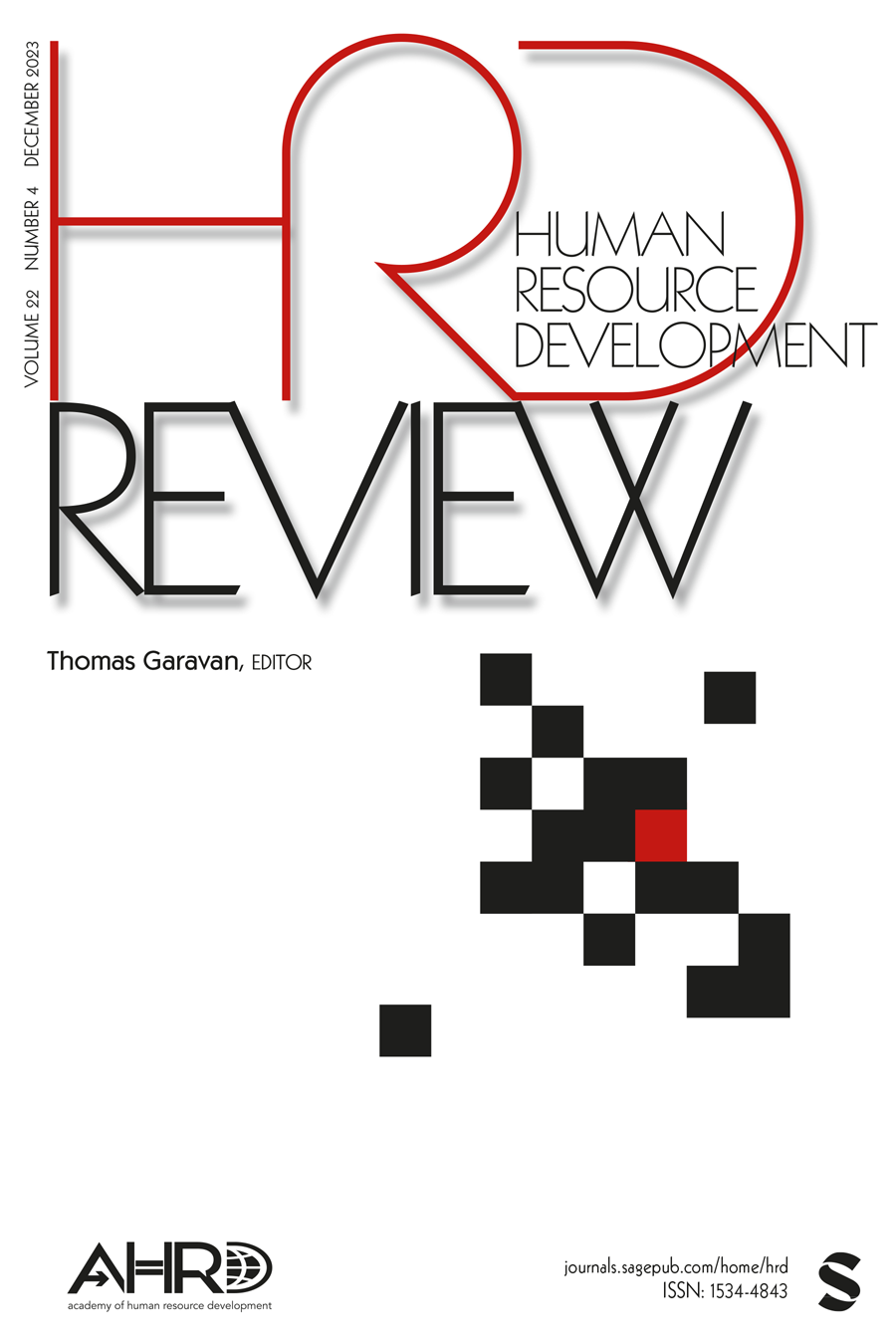Conducting and Writing a Structured Literature Review in Human Resource Development
IF 4.6
3区 管理学
Q1 MANAGEMENT
引用次数: 4
Abstract
This article describes how to develop, conduct, and write a structured literature review (SLR) and cites examples of published SLR to illustrate different perspectives on the process and contributions to the literature. We first discuss how the SLR differs from other types of reviews (i.e., integrative literature review, meta-analysis, and scoping review). Second, the process of writing an SLR is discussed across common manuscript components: (1) the research problem, (2) conceptual or theoretical framework, (3) method, (4) findings and discussion, and (5) implications. Finally, we offer implications for how the SLR can be effectively leveraged in human resource development.进行并撰写一篇结构化的人力资源开发文献综述
本文描述了如何开发、进行和撰写结构化文献综述(SLR),并引用了已发表的SLR的例子,以说明对这一过程和对文献的贡献的不同观点。我们首先讨论SLR与其他类型的综述(即综合文献综述、荟萃分析和范围界定综述)的区别。其次,SLR的写作过程涉及常见的手稿组成部分:(1)研究问题,(2)概念或理论框架,(3)方法,(4)发现和讨论,以及(5)含义。最后,我们为如何在人力资源开发中有效利用SLR提供了启示。
本文章由计算机程序翻译,如有差异,请以英文原文为准。
求助全文
约1分钟内获得全文
求助全文
来源期刊

Human Resource Development Review
MANAGEMENT-
CiteScore
9.60
自引率
17.20%
发文量
35
期刊介绍:
As described elsewhere, Human Resource Development Review is a theory development journal for scholars of human resource development and related disciplines. Human Resource Development Review publishes articles that make theoretical contributions on theory development, foundations of HRD, theory building methods, and integrative reviews of the relevant literature. Papers whose central focus is empirical findings, including empirical method and design are not considered for publication in Human Resource Development Review. This journal encourages submissions that provide new theoretical insights to advance our understanding of human resource development and related disciplines. Such papers may include syntheses of existing bodies of theory, new substantive theories, exploratory conceptual models, taxonomies and typology developed as foundations for theory, treatises in formal theory construction, papers on the history of theory, critique of theory that includes alternative research propositions, metatheory, and integrative literature reviews with strong theoretical implications. Papers addressing foundations of HRD might address philosophies of HRD, historical foundations, definitions of the field, conceptual organization of the field, and ethical foundations. Human Resource Development Review takes a multi-paradigm view of theory building so submissions from different paradigms are encouraged.
 求助内容:
求助内容: 应助结果提醒方式:
应助结果提醒方式:


